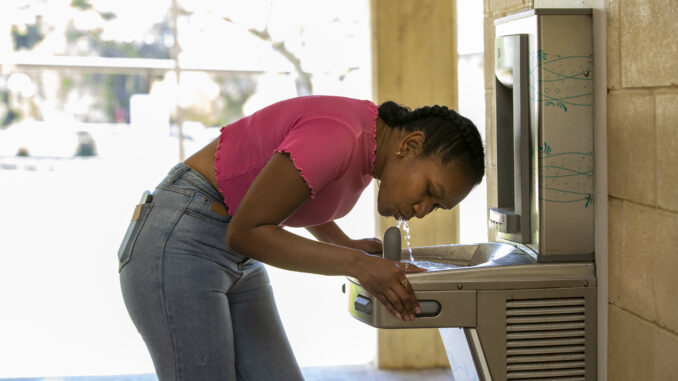
By Hank Russell
A recent audit from the state Comptroller’s Office found that the Commack Union Free School District failed to properly report incidences of lead exposure within its schools’ drinking water.
District officials did not properly identify, report or implement needed remediation to reduce lead exposure in all potable water outlets as required by state law and state Department of Health (DOH) regulations, based on the audit. Auditors determined that 20 water outlets (16 shower outlets and four bathroom outlets located in elementary school classrooms) of the 521 water outlets identified at select areas were not sampled or properly exempted.
Auditors determined that district officials did not review or update the sampling plan to identify all water outlets. They also reviewed the test results for 40 of the 135 water outlets that exceeded the lead action level and determined the district did not effectively remediate 24 of the 40 water outlets.
Further, district officials did not properly report laboratory test results for testing conducted, including the results showing 135 of 765 (18%) water outlets were above the lead action level, within the required time periods or to all required parties. Test results identifying sampled water outlets with actionable lead levels were reported to the local health department an average of 18 days late, instead of one business day as required; and staff, parents and guardians were not notified of these results in writing, as required.
“Because District officials relied on the previous Interim Director of Facilities to oversee the lead testing program, they were not aware that not all water outlets were identified and sampled, or exempt from sampling, as required,” the audit said. “Had District officials regularly reviewed and updated the sampling and remedial action plans, they could have quickly reviewed the work performed and overseen by the previous Interim Director of Facilities and determined whether all water outlets were sampled or exempt from sampling.”
The comptroller’s office made the following recommendations:
- Review and update sampling and remedial action plans for all District water outlets that could be used for drinking and cooking, including details on which water outlets will be considered exempt from sampling and their controls to secure against use.
- Sample all water outlets that could be used for drinking and cooking and properly secure any water outlets designated as exempt.
- Remediate or implement effective long-term controls for all water outlets that exceed the lead action level, including continued education to staff and students to reinforce understanding and compliance with rules to prevent the use of exempted water outlets for consumption.
- Keep accurate records of all remediation efforts, including actions taken and dates performed.
- Develop procedures identifying all individuals involved in lead testing and reporting and their roles and responsibilities
- Notify all required parties timely after lead testing results are received.
- Keep accurate records of all notification efforts performed.
In response, the district had some issues with the recommendations. As an example, the district claimed it started making improvements to its lead reporting and testing program before the audit began.
“While we recognize and take seriously the findings and recommendations presented in the report, we believe the audit does not fully acknowledge the overall effectiveness of the District’s efforts in protecting students and staff from lead exposure,” said School Superintendent Dr. Jordan F. Cox. “Despite the technical reporting and procedural issues noted, the District has maintained a robust and proactive approach to identifying, addressing, and mitigating potential lead hazards in school drinking water.”
Cox said the district will review the recommendations made by the auditor and submit a formal Corrective Action Plan “within the prescribed timeframe.”

